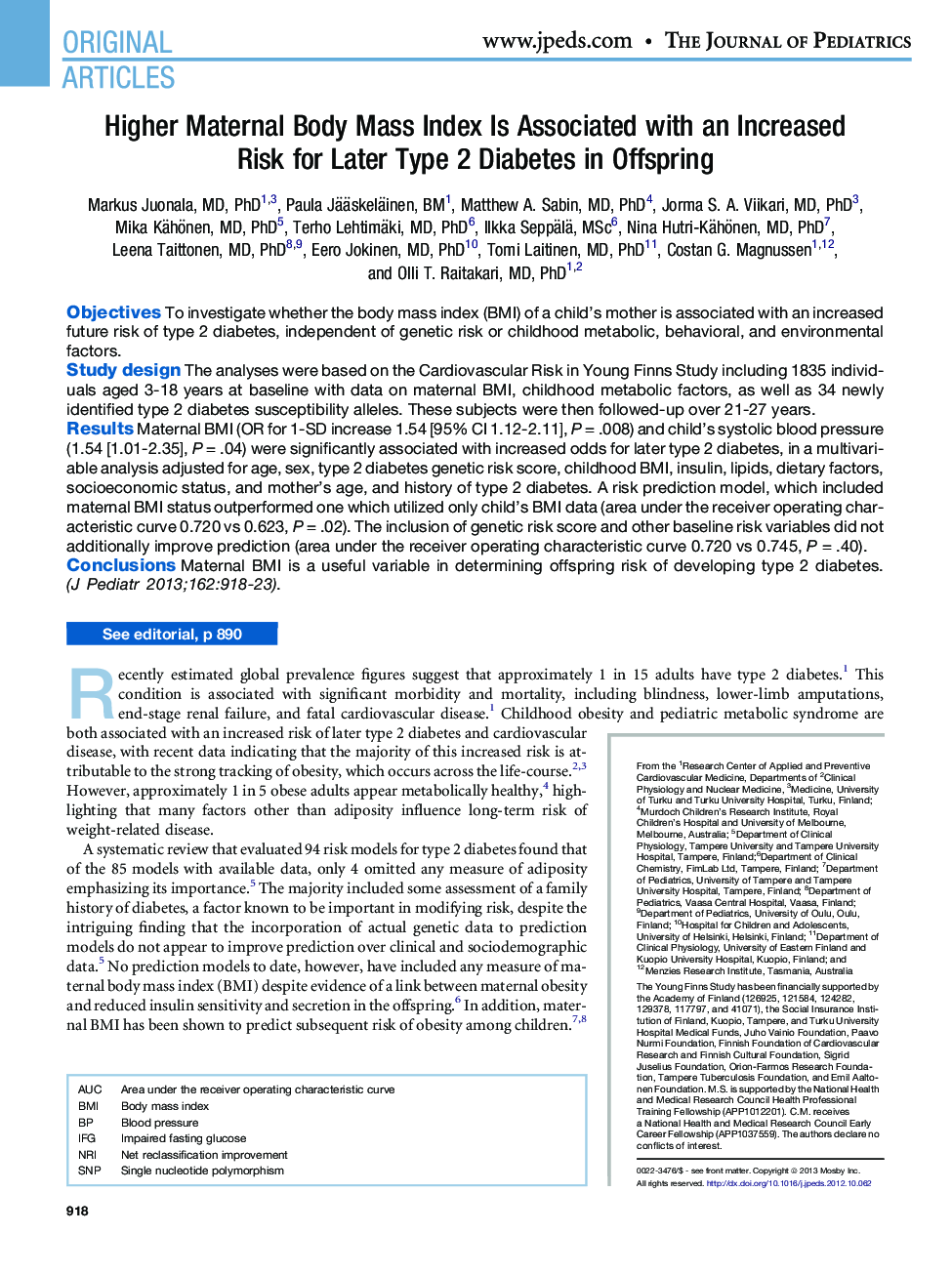| Article ID | Journal | Published Year | Pages | File Type |
|---|---|---|---|---|
| 6223653 | The Journal of Pediatrics | 2013 | 7 Pages |
ObjectivesTo investigate whether the body mass index (BMI) of a child's mother is associated with an increased future risk of type 2 diabetes, independent of genetic risk or childhood metabolic, behavioral, and environmental factors.Study designThe analyses were based on the Cardiovascular Risk in Young Finns Study including 1835 individuals aged 3-18 years at baseline with data on maternal BMI, childhood metabolic factors, as well as 34 newly identified type 2 diabetes susceptibility alleles. These subjects were then followed-up over 21-27 years.ResultsMaternal BMI (OR for 1-SD increase 1.54 [95% CI 1.12-2.11], PÂ =Â .008) and child's systolic blood pressure (1.54 [1.01-2.35], PÂ =Â .04) were significantly associated with increased odds for later type 2 diabetes, in a multivariable analysis adjusted for age, sex, type 2 diabetes genetic risk score, childhood BMI, insulin, lipids, dietary factors, socioeconomic status, and mother's age, and history of type 2 diabetes. A risk prediction model, which included maternal BMI status outperformed one which utilized only child's BMI data (area under the receiver operating characteristic curve 0.720 vs 0.623, PÂ =Â .02). The inclusion of genetic risk score and other baseline risk variables did not additionally improve prediction (area under the receiver operating characteristic curve 0.720 vs 0.745, PÂ =Â .40).ConclusionsMaternal BMI is a useful variable in determining offspring risk of developing type 2 diabetes.
